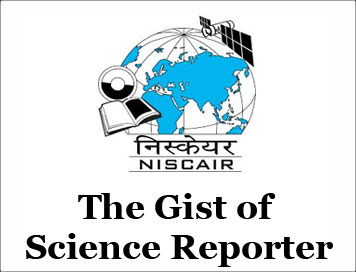(GIST OF SCIENCE REPORTER) MCQs on Plants have economic importance
(GIST OF SCIENCE REPORTER) MCQs on Plants have economic importance
[MAY-2022]
MCQs on Plants have economic importance
1. A plant which is the richest source of proteins amongst the legumes, also known as ‘wonder bean’ owing to its numerous wonderful uses.
(a) Kidney bean
(b) Cluster bean
(c) Soya bean
(d) Chickpea
2. A spice known as the ‘King of Spices’, also termed ‘black gold of India’.
(a) Saffron
(b) Clove
(c) Cardamom
(d) Black Pepper
3. One of the strongest structural fibres that is used for making tea bags.
(a) Manila Hemp
(b) Jute
(c) Sunn Hemp
(d) Cotton
4. The source of the ‘quills of commerce’ is...............
(a) Turmeric
(b) Cinnamon
(c) Ginger
(d) Nutmeg
5. The leaves used for wrapping tobacco in a ‘bidi’ are..............
(a) Tea leaves
(b) Tendu leaves
(c) Curry leaves
(d) Basil leaves
6. The drug from this plant is used as a myocardial stimulant and is used in the treatment of circulatory disorders
(a) Foxglove
(b) Rauwolfia
(c) Poppy
(d) Belladonna
7. The plant is known as the ‘Green Gold’ of India because of its numerous economic uses and the dependency of a large number of rural people on it to earn their livelihood.
(a) Sal
(b) Pine
(c) Bamboo
(d) Teak
8. An important source of essential oil, which is used in mosquito and vermin repellents and its vapours give relief cough in chronic bronchitis and asthma, often planted to reclaim swamps.
(a) Sandalwood tree
(b) Citrus tree
(c) Cedarwood tree
(d) Blue Gum tree
9. A pseudocereal which is a good source of high-quality proteins besides being high in carbohydrate content.
(a) Mickrice
(b) Quimaize
(c) Buckwheat
(d) Weloat
10. Fondly called ‘The tree of heaven’ – Kalpavriksha – an important tropical plant, it provides all the necessities of life. The dried kernel of the plant is of prime importance though all parts of the plant are useful. In India, Kerala contributes to nearly half of its total production.
(a) Olive tree
(b) Coconut tree
(c) Ashoka tree
(d) Arjuna tree
11. Tea is one of the most popular non-alcoholic beverages in the world. The alkaloid responsible for the stimulating and refreshing characteristics of tea is................
(a) Tannin
(b) Theol
(c) Theine
(d) Tannic acid
12. Vetiver (Khas-Khas) oil, obtained from the Vetiver plant, is extensively used in perfumery and medicine. The primary oil yielding part of the plant is
(a) Stem
(b) Roots
(c) Leaves
(d) Flowers
13. A plant source of oil that is used in histology as a clearing agent, also as an ingredient of toothpastes and mouthwashes and is used for relieving toothache.
(a) Clove
(b) Cumin
(c) Mustard
(d) Sesame
14. The coarse fibres obtained from this plant are employed in the manufacture of cigarette paper.
(a) Jute
(b) Hemp
(c) Flax
(d) Kapok
15. An important insecticide of plant origin that leaves no harmful residue and is biodegradable, used for pest control, to protect stored grains and in mosquito repellent creams and ointments.
(a) DDT (dichloro-diphenyl-trichloroethane)
(b) 2, 4-D (2, 4-dichloro phenoxy acetic acid)
(c) Dalapon
(d) Pyrethrum
16. Which of the following is not a citrus fruit?
(a) Grapefruit
(b) Mandarin
(c) Kinnow
(d) Raspberry
17. Very nutritious seeds which are an excellent source of healthy omega-3 fatty acids, dietary fibers, minerals and proteins (especially tryptophan) and that are free from cholesterol and gluten, also prevent blood sugar spikes are....................
(a) Watermelon seeds
(b) Chia seeds
(c) Barley
(d) Sunflower seeds
18. Molasses, used for making alcoholic drinks such as rum and several chemicals such as vinegar, industrial alcohol, lactic acid, lactic acid, monosodium glutamate, etc. is obtained as an important by-product during the processing of
(a) Vegetable dyes
(b) Tea
(c) Sugar
(d) Rubber
CLICK HERE TO DOWNLOAD FULL PDF
CLICK HERE TO DOWNLOAD UPSC E-BOOKS
Study Material for UPSC General Studies Pre Cum Mains
Get The Gist 1 Year Subscription Online
Click Here to Download More Free Sample Material
<<Go Back To Main Page
Courtesy: Science Reporter


